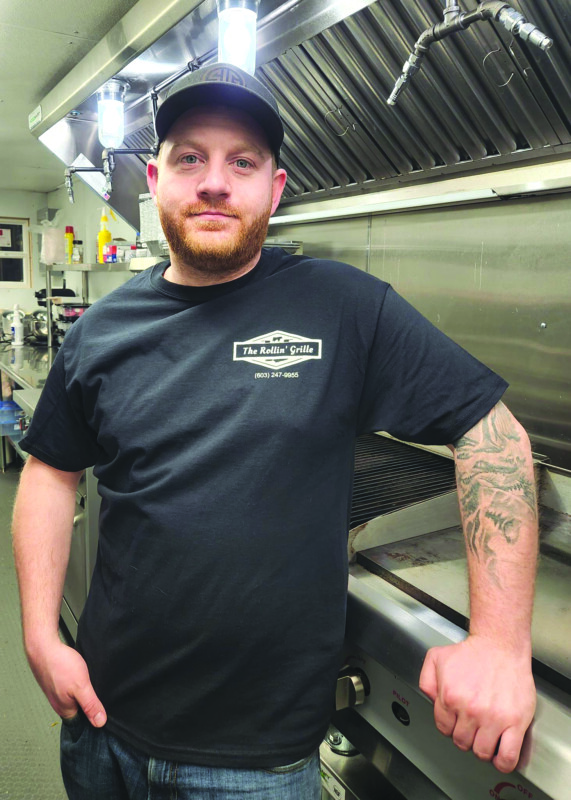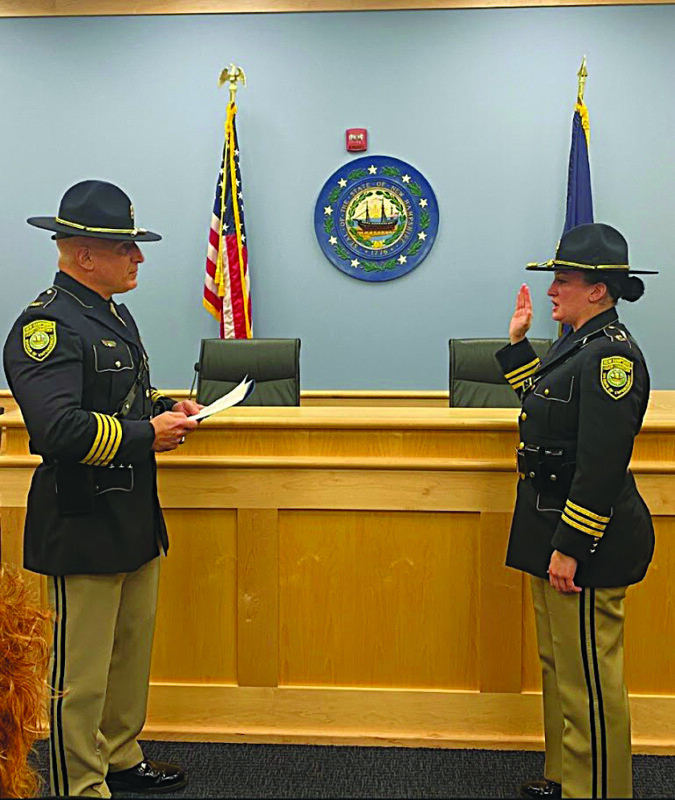Christian Davolio of Hudson runs The Rollin’ Grille (therollingrille.com, and on Facebook @therollingrille), a mobile food trailer specializing in scratch-cooked comfort items like double smash cheeseburgers, loaded pulled pork fries and smoked chicken wings. Originally from Tewksbury, Mass., Davolio has lived in Hudson for about four years. He previously worked in the IT field before deciding to pursue his passion of cooking. The Rollin’ Grille held its first public event in February at White Birch Brewing (460 Amherst St., Nashua), where Davolio has set up over the past several weekends. Find him there next on Sunday, April 10, from 10 a.m. to 2 p.m.
What is your must-have kitchen item?
[I have] a super-nimble light spatula that is great for getting those smash burgers off the griddle and keeping that crust on there. I’d say that’s in my hand 90 percent of the time I’m on that trailer.
What would you have for your last meal?
A three-way super roast beef sandwich, so [with] cheese, mayo and sauce. Growing up, that was something my father and I would always do together — we’d go out and get super beefs. … If it was my last meal, I’d want to have something with some really good memories behind it.
What is your favorite local restaurant?
It’s tough because there are a lot of great options out there, but two places I find myself at a lot when I’m eating out … are usually either T-Bones or California Burrito.
What celebrity would you like to see ordering from your trailer?
I think I’m going to go with Roy Choi. He started off with a food truck, and he’s just a great chef with a great personality. I think I’d really like to have him come and try my food and just see what I have going on.
What is your favorite thing on your menu?
I’m going to go with the signature smash burger. In my opinion, it’s just a perfect blend of flavors and of what I like on a burger. … It’s two patties, usually with cheese on both, and then grilled onions, bacon and barbecue sauce. … When the day’s over and I’m cooking something by myself, that’s what I’m making.
What is the biggest food trend in New Hampshire right now?
Over the past few years we’ve seen an explosion in outdoor dining … and that was a big thing that I was thinking about when I was trying to get into this industry, because the food trailer is perfect for that. … The smash burger is also something that I’ve seen popping up at more and more places.
What is your favorite thing to cook at home?
The thing that I could cook every single day, if it was a healthier option, is a nice bone-in rib-eye steak.
Bacon burnt ends
From the kitchen of Christian Davolio of The Rollin’ Grille (recipe calls for a smoker, but can also be done in an oven if a smoker is not available)
1 full slab pork belly (with the rind removed)
¾ stick butter
Yellow mustard
Salt
Pepper
Brown sugar
Barbecue sauce
Cut pork belly into 1-inch cubes. Coat with yellow mustard as a binder. Season liberally with salt and pepper. Put on smoker at 250 degrees. Remove from smoker after about two hours or an internal temperature of 190 degrees. Put them in a foil baking pan and put slices of butter over them, then lightly coat in brown sugar. Wrap tightly in foil and put back on the smoker for about 45 minutes. After 45 minutes, remove from the smoker and increase the heat to 325 degrees. Drain juice, then sauce the cubes with your choice of barbecue sauce. Place back on the smoker, uncovered, for 25 minutes at 325 degrees. Remove from the smoker and enjoy.
Featured photo: Christian Davolio. Courtesy photo.






